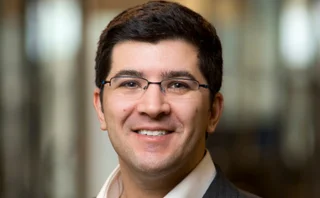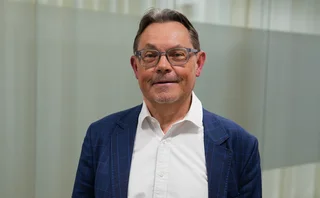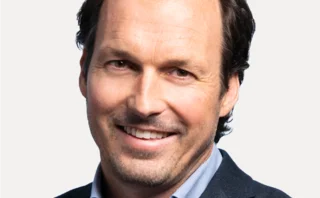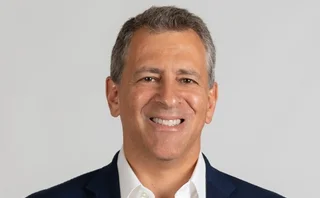
Environmental products house of the year: Marex
Energy Risk Awards 2025: Marex Environmental spans firm to give all clients access to green markets
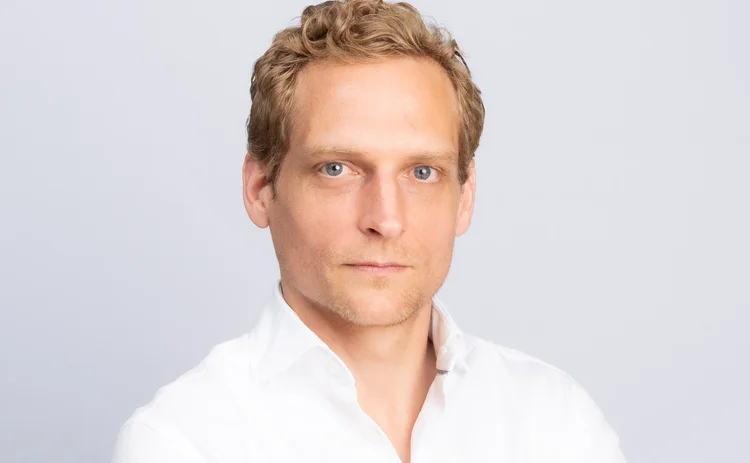
Bastien Declercq, head of Marex’s environmental business, believes virtually all Marex clients will need to operate in the environmental markets at some stage. This is why the financial services firm – winner of Energy Risk’s 2025 Environmental products house of the year award – built Marex Environmental to span the four segments of its client services: clearing; agency and execution (its brokerage business); market making; and its bespoke hedging support business.
The firm’s presence in environmental markets stretches back to the 2007 launch of its US compliance markets desk. Since then, Marex’s environmental business has not only grown in size, but also in importance across the firm.
“We are developing the business in a holistic manner. We try and cover every touchpoint with our customers … because, quite frankly, everyone needs access to the environmental markets,” Declercq says.
“Many of our clients are consumers or producers of commodities,” he adds. “They all have some challenges with the energy transition and we want to build a business that is diversified enough to offer a solution in all cases,” he says.
That might be a low- or zero-carbon alternative fuel, such as biomethane, recycled metals, or renewable power, he says. Or it might be a carbon offset, a renewable energy guarantee of origin, or a Renewable Thermal Certificate generated by renewable natural gas producers in the US. Indeed, Marex is active in more than 50 environmental products across compliance and voluntary environmental markets globally.
Declercq reports rapid growth in Marex Environmental. It now accounts for 4% of revenue at the UK-based group, which listed on Nasdaq last year. “Our environmental business has grown rapidly in recent years, with revenue increasing over 40% in 2024 compared to 2023. We continue to expand both organically and through new, strategic investments,” he says, citing the acquisition of Dropet, a Spanish biofuels brokerage, investment in Key Carbon, a Canada-based carbon finance firm, and an expansion into New Zealand, including the launch of a locally focused carbon trading platform.
That growth is driven partly by an evolution in how companies are approaching the energy transition, he explains. Until a couple of years ago, action was driven primarily from pressure from investors and marketing opportunities, he says. “We’ve seen a radical shift. Demand in the voluntary markets has stalled, and the main driver of the market is now regulation.”
He cites the introduction of the Carbon Offsetting and Reduction Scheme for International Aviation (Corsia) carbon cap-and-trade regime for airlines, the extension of the EU Emissions Trading System to shipping at the start of this year, and the creation of ‘hybrid’ carbon programmes such as those in Singapore, where emitters can either pay a tax on their emissions or partly comply using carbon credits.
But these new regimes create challenges for firms covered by them. He cites ongoing questions around which types of emission reduction projects will be eligible to supply credits that airlines can use to comply with Corsia. A transaction that Marex structured for one airline allowed it to lock in low ‘first-mover’ prices for credits from a particular project, but which included a clause that knocked out the trade if the project does not subsequently meet the eligibility criteria when they are decided. “We’re adding optionality to the contract,” he says.
Aside from credits, alternative fuels will be essential for industries such as aviation or shipping, which are “constrained by space and weight”, Declercq says. This creates the need for “solutions where you decarbonise up the supply chain”. Here, Declercq sees enormous potential for using biomethane as a feedstock to create synthetic zero-carbon aviation or bunker fuels. “We see an opportunity in using biomethane to produce synthetic shipping fuel, for example,” he says.
Marex is also helping to advance nature-based solutions. It has invested in a project from the Global Mangrove Trust, which is restoring mangroves in North Sumatra, Indonesia, and has used it to offset its Scope 1 and 2 emissions since 2022. Its support for the project is a long-term commitment to help bring high-quality and high-integrity credits to the market, Declercq says. “We’ve taken this project from infancy to the marketing phase … It’s the kind of effort that plays out over the long term.”
He takes the same view on the Trump Administration’s drive to roll back environmental regulations and remove incentives to lower carbon emissions. “This is a multi-decade transition. The fact is, we have to face climate change and do something about it. What the US administration does will definitely have an impact on the investment cycle. Things will take longer and it’s going to be harder. But nobody can stop the freight train that’s coming,” he says.
Only users who have a paid subscription or are part of a corporate subscription are able to print or copy content.
To access these options, along with all other subscription benefits, please contact info@risk.net or view our subscription options here: http://subscriptions.risk.net/subscribe
You are currently unable to print this content. Please contact info@risk.net to find out more.
You are currently unable to copy this content. Please contact info@risk.net to find out more.
Copyright Infopro Digital Limited. All rights reserved.
As outlined in our terms and conditions, https://www.infopro-digital.com/terms-and-conditions/subscriptions/ (point 2.4), printing is limited to a single copy.
If you would like to purchase additional rights please email info@risk.net
Copyright Infopro Digital Limited. All rights reserved.
You may share this content using our article tools. As outlined in our terms and conditions, https://www.infopro-digital.com/terms-and-conditions/subscriptions/ (clause 2.4), an Authorised User may only make one copy of the materials for their own personal use. You must also comply with the restrictions in clause 2.5.
If you would like to purchase additional rights please email info@risk.net
More on Commodities
Energy Risk Asia Awards 2025: The winners
Winning firms showcase the value of prudent risk management amid challenging market conditions
Data and analytics firm of the year: LSEG Data & Analytics
Energy Risk Awards 2025: Firm’s vast datasets and unique analytics deliver actionable insights into energy transition trends
OTC trading platform of the year: AEGIS Markets
Energy Risk Awards 2025: Hedging platform enhances offering to support traders and dealers in unpredictable times
Electricity house of the year: Natixis CIB
Energy Risk Awards 2025: Bank launches raft of innovative deals across entire electricity supply chain
Voluntary carbon markets house of the year: SCB Environmental Markets
Energy Risk Awards 2025: Environmental specialist amplifies its commitment to the VCM
Sustainable fuels house of the year: Anew Climate
Energy Risk awards 2025: Environmental firm guides clients through regulatory flux
Weather house of the year: Parameter Climate
Energy Risk Awards 2025: Advisory firm takes unique approach to scale weather derivatives markets
Hedging advisory firm of the year: AEGIS Hedging
Energy Risk Awards 2025: Advisory firm’s advanced tech offers clients enhanced clarity in volatile times

